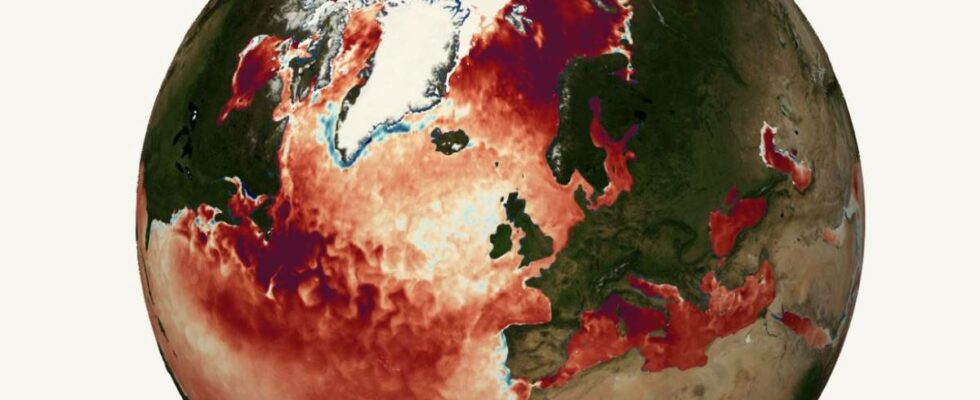– Now it is around four to five degrees warmer than usual, says Marta Trodahl, researcher at the Meteorological Institute. She has collected data and put together the map you see at the top of the case, with fiery red markings in the sea off northern Norway and further north in the Barents Sea. But what actually happens, the researchers know far too little about, they themselves believe. There are a number of studies on heat waves in tropical regions, but far fewer on those that occur in the north. Recent studies nevertheless show that the heat periods are becoming more and more intense. – Things indicate that the Barents Sea and the northern part of the Norwegian Sea may be a hotspot for these marine heat waves, says Trodahl. How much sudden heat can the catfish and the other species in the sea tolerate? It is an important question for researchers in the years to come. Photo: Erling Svensen / Havforskingsinstituttet Hitting the fish Much of the life in the sea is adapted to a narrow temperature range – that is, rather cool water in the northern regions. A sudden blip of heat can particularly affect those species that cannot quickly move north or down into deeper water. Researcher Anne Britt Sandø works at the Institute of Marine Research and the Bjerknes Center. She cannot say anything concrete about the consequences of the ongoing heat wave. But in general it is known that periods of warmer water can affect several levels of the ecosystem. – We have been a bit concerned about effects on kelp. It can become stressed and exposed to mass death if you have a severe heat wave. These kelp forests are again important breeding grounds for fish, says Sandø. The Sørland coast was affected by this phenomenon in 2018. The kelp forest cannot escape when it gets hot, and in the worst case can die from a marine heat wave. Photo: Jonas Thormar / Marine Research Institute Farming facilities can also be exposed. The salmon become stressed and need more oxygen when the temperature rises. – All fish caught in cages will be unable to escape from the heat waves. It is likely to be the type of species most exposed to harmful consequences. According to Sandø, more research is about to be initiated into how fish and other life in the sea are affected by heat waves. Will warn The impact depends on whether it is warm surface water, as the satellites measure, or whether it runs deeper. The marine researchers hope to contribute to warning of the heat waves, so that, for example, the farming industry can be prepared. The salmon become fresher and thrive much better in cool water. The farming industry can benefit from a future warning about heat waves in the sea. Photo: André Bendixen/news – We don’t have a warning system in place today, but it is something we would like to get funds for, says Trodahl. – In order to be able to warn of a marine heat wave, it is quite essential to know which mechanism causes it: whether this is abnormally warm water that is transported with the ocean currents, or whether it is something coming from the atmosphere, says Sandø. – There are things that indicate that exactly the heat wave we have had in recent weeks comes from the atmosphere, as it has been particularly hot in the air. In some years, it is also seen that the heat wave can go all the way to the bottom of the Barents Sea, for example. The marine scientists are also interested in looking more closely at the connection between the sea temperature and the bloom of Vibrio bacteria. Several species can cause disease in humans, including serious infections in wounds. Climate as a backdrop Heat waves will probably come more often, be more intense and last longer in the years to come, climate experts expect. – The backdrop behind these extreme events is the global warming we are seeing on a long-term scale. The gradual warming, both in the sea and in the air, provides a basis for extreme events that are more short-lived. But they can also be quite destructive, says Trodahl. Published 17.08.2024, at 22.24 Updated 17.08.2024, at 23.14
ttn-69
Heat waves in the sea can cause mass death – researchers want to understand them better – news Troms and Finnmark

